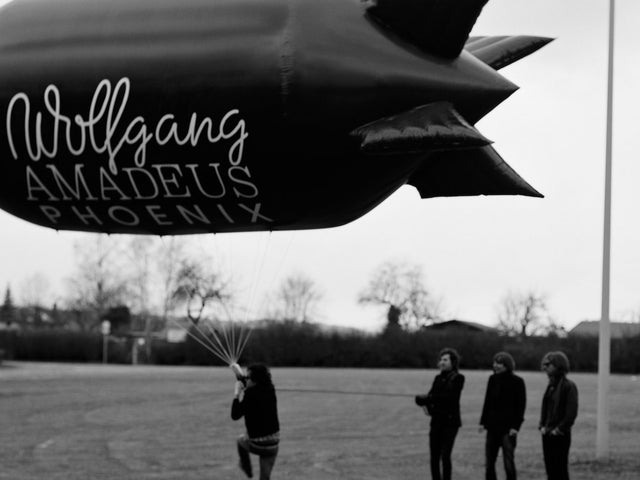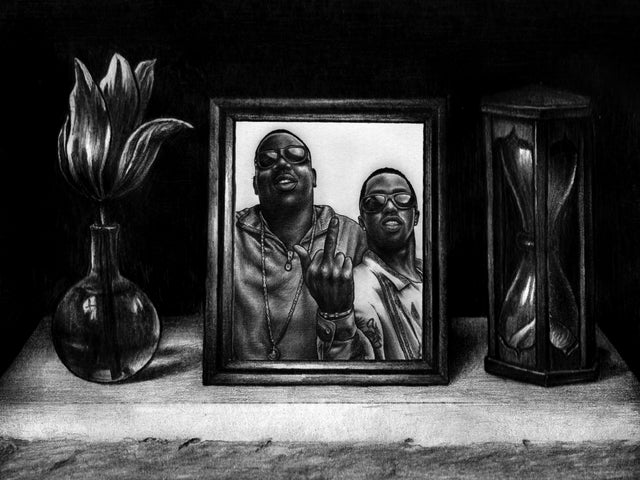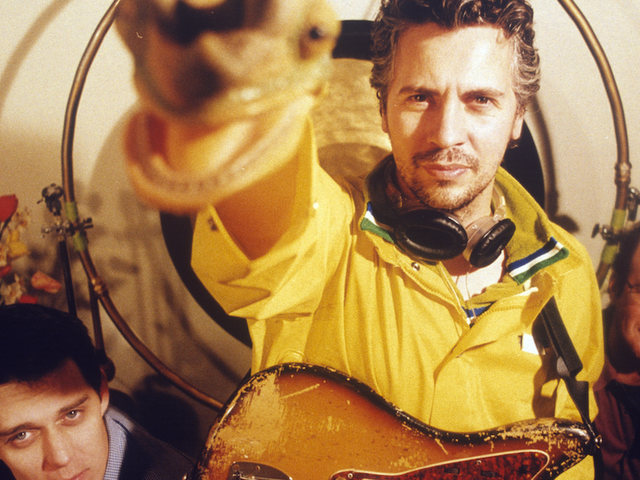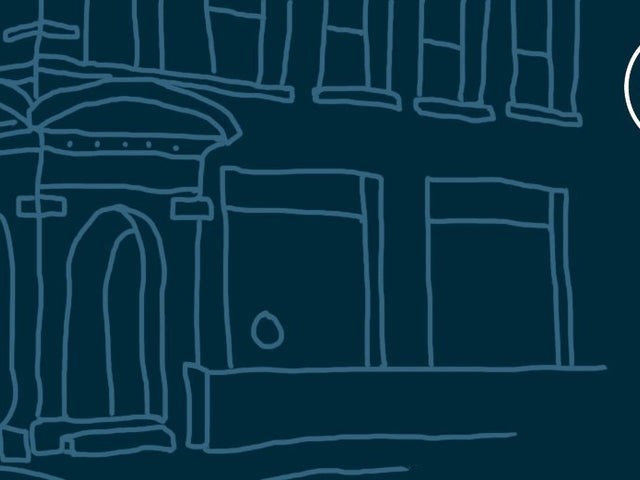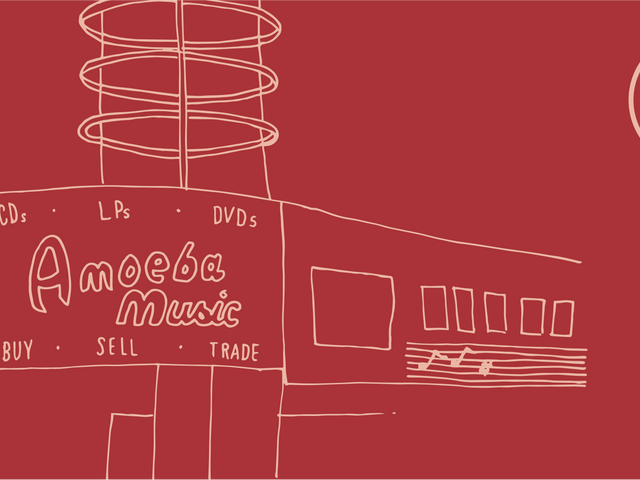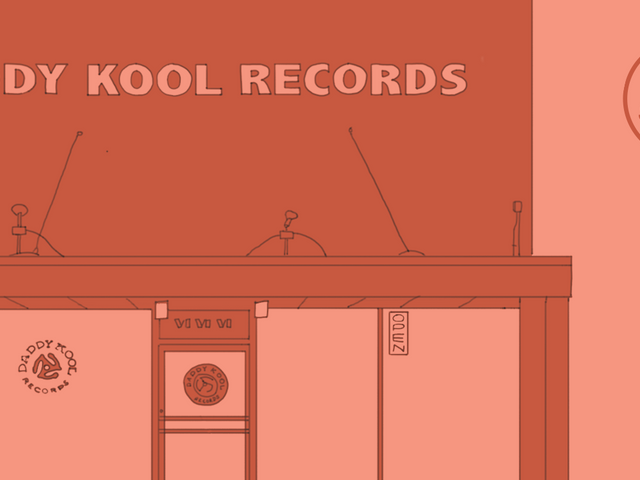The 50 Best Record Stores In America is an essay series where we attempt to find the best record store in every state. These aren’t necessarily the record stores with the best prices or the deepest selection; you can use Yelp for that. Each record store featured has a story that goes beyond what’s on its shelves; these stores have history, foster a sense of community and mean something to the people who frequent them.
The dream of Los Angeles is myth unfulfilled, a sunset with only pink left against the black. Late for the sky, Jackson Browne called it.
Hollywood invariably manages to feel like a knockoff of itself, and if that hasn’t always been the case it’s been true ever since I got here. Do you remember the first time you saw an empty film set? Witnessed the false front of a beloved movie scene? They make me shudder; they look so full of longing when the lights go out, worlds vanishing in shadows. Most people flock to these studio tours, find them exciting. All I felt was a deep, sad understanding, like being hit for the first time by someone who said they loved me. I wanted somewhere loud and red like a city is supposed to feel, a living, breathing organism of strangers united by a lost dream.
At 18, I was just old enough to think I’d already seen the worst, and just young enough to hope for the best, anyway. In college, as a transplanted teenager, wandering the streets my idols made famous (“move west down / Ventura Boulevard”) always made me feel like I was born too late. Mulholland. Ventura. Sunset. They were lyrics to me first, paved through my brain long before I set foot on their actual asphalt, back before I knew for sure any of this was real.
Outside of Hollywood, California’s mythic, golden history is tied to its streets. That the actual roads—dirty, tar-and-rubber, potholed—never lived up to their hallowed status should not be surprising. Nothing does here—that’s the whole point. Still I think: If I could just get on the right freeway, the right backroad, I’d find the sun before it set; I’d be early, for once. When I drive through this city during sunset I remember that I’m the thing I’ve been looking for.
The first time I felt found in LA it was at Amoeba Records. Homesick, lonely and most of all, terrified of growing up, Amoeba was the first place that gave off any real heat in this strange desert. Eleven years ago now, the store was only five years old then, but it might as well have been a thousand for all the reverence I felt. Knock-kneed with anticipation, cowlick gone wild in the heat, I was looking for America. So many other parts of Los Angeles had let me down, already, I desperately wanted this one to light me up.
And for once, mythic California became real.

Rounded, rising, up out of the corner of Sunset and Cahuenga, Amoeba’s Los Angeles location has a facade, like a theater or a venue, further cementing its status as a landmark, the last earnest holdout on a street cannibalized by tinny chain stores and overpriced parking. And while it does frequently host small, intimate live shows, this marquee is something of a veil for the wall-to-wall racks of merch, the CDS, vinyl, DVDs and tapes it houses. Walking inside the massive, cement cavern can feel like walking right into one of those old lyrics. Employees and guests alike radiate a sense of veneration when inside, like pilgrims at their mecca. There’s a kind of hush.
Also, there’s an unrelenting buzz. There is desire here, and so much longing. Sometimes I think the building knows it is the last of its kind: The world's largest independent record store. Even if I know we’re trading in relics, there is something to be said for going through the motions, like a catechism or a rosary. Probably meaningless, but maybe, just maybe, one small step toward our own kind of paradise. After all, the past is only truly ours when we’re idolizing it, and it’s only natural that dreamers flock to Amoeba, to that otherworldly red-neon-wrapped tower, the strange austerity in the alien, singular letters and primary colors that insist on themselves even though their time has passed. To be the last of your kind is to be helpless without any desperation. This, too, is a kind of strength.
Amoeba’s true roots are in the Bay area; it’s been blazing on Haight Street in San Francisco long after the insurgence of pot and free love had lost its rebellious power, and the flagship location stays open on Telegraph Avenue in Berkeley, persisting, since it opened its doors in 1990, as a renegade against the march of digital consumerism. The northern California locations are probably more historic, and yes, they opened first, but the Amoeba Store on Sunset has the sheen of the sacred. It belongs to Southern California, and to those mythologizing it.
Lately, the building has been threatened by the encroaching march of the future: condos, more Hollywood emptiness, another vanishing landmark sold out to a God with a cold, hard name. Amoeba isn’t Amoeba if it’s not on Sunset Boulevard, the streets mean something around here, they carry legacies. But, the spirit will live on wherever it relocates. At the top of the year, I drove to Amoeba, bought a Paul Simon cassette with “Born At The Right Time” on it, and played it till the tape wore out. I wanted to hear it warp. It’s a lie to only look backward; the MP3 version sounds perfect every sunset, no matter where I am.
Of course, I didn’t really go to Amoeba to buy music, and that isn’t why I still go. I went to Amoeba looking for a feeling, I go to remember a version of myself. I go to pretend that my small offering of cash can stage a protest against the fact that the world I loved won’t stop unraveling. More likely, that world never really existed, but Amoeba is the closest I can come to proof that it did, pink light against the black.
Up next, we head to a record store in Rhode Island.
